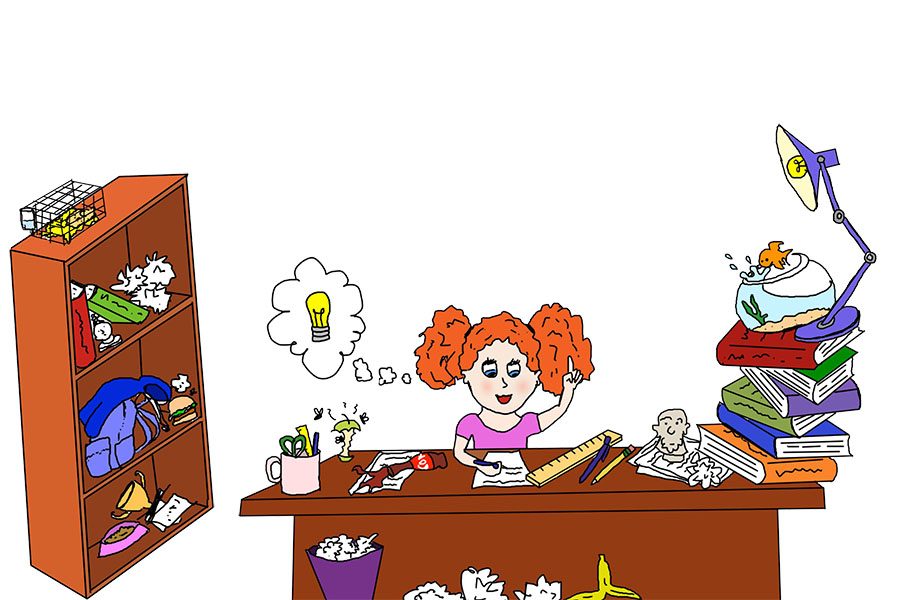Since we were little, we have been coerced into cleaning our rooms. Time and time again we’d resist–making our beds was futile because it would only be undone later that day, or that it made perfect sense to leave our clean clothes in a pile in our room because we would wear them soon anyway. Dejectedly, we would be sent off to clean our rooms with the words, “Cleanliness is next to godliness.”
Or is it?
What if this age-old belief that we should have a clean room and that a messy one is not acceptable is wrong? Or, more specifically, what if there are actually advantages to embracing our inner messiness?
First and foremost, it is important to understand the motivation behind the mess. In other words, why are some people neat freaks while others are complete slobs?
Regardless of whether cleanliness is inherited or changeable, the rationale behind the messiness can be summed up in a couple of theories.
Some messy individuals simply do not see the upside of a clean room or consider its benefits not worth the actual effort they must exert in cleaning it. Others just never get around to cleaning their room; more interesting things always seem to “arise.” (Most often, I find myself in this category.)
For sophomore Angela Alvarez, laziness is at the core of her predicament.
“When I wash my clothes, I just don’t want to put them away,” Alvarez said. “They just end up laying on my couch for a while until I sift through them to find new things.”
While our tidiness preferences differ a great deal, everyone can occasionally benefit from accepting the clutter.
In fact, studies conducted by Northwestern University and The New York Times indicate that people in messy environments were able to think more creatively when solving problems.
To test this, subjects were assigned to either clean or messy rooms and were asked to brainstorm potential solutions to hypothetical problems. Their responses were rated according to their creativity–more innovative responses scored higher. Based on these results, researchers concluded that being in an unkempt setting actually promoted more creative responses.
Though it first seemed groundbreaking to me, this theory actually makes perfect sense.
Many students, such as sophomore Charu Vijayvargiya, already recognize the potential benefits to succumbing to the clutter.
“I think [messiness] does help you to be creative because you see things around and come up with different ideas based on what you see,” she said.
Sophomore Trent Bangle, though he considers himself neat, notes that excessive tidiness can have its downsides.
“Some people can’t focus unless everything is perfectly neat before they start,” Bangle said. “When working on a project, they have very specific preferences, and I guess it could bother people if they are trying to get something done and one little thing is out of place.”
Art teacher Kimberly Moreland-Garnett concurs with this attitude.
“Being clean is too boring,” Moreland-Garnett said. “I don’t know if I’ve ever seen an artist’s studio that is really clean.”
This rings true in other cases as well. Apart from maybe, Martha Stewart, many of the greatest scientists, artists and entrepreneurs actually prefer to work amid mess. The desks of Steve Jobs, Mark Twain, Albert Einstein and Mark Zuckerberg are all strewn with stacks of papers, books and utter mayhem.
It is worth noting that these innovators aren’t messy for the sake of being messy; their messes carry personal significance.
“You have to put a part of ‘you’ in the messiness,” said sophomore Ava Hickman.
This is not to say that you should knock some papers askew in your room, but merely let yourself become a part of your mess. Because as Albert Einstein once said, “If a cluttered desk is a sign of a cluttered mind, then what are we to think of an empty desk?”




